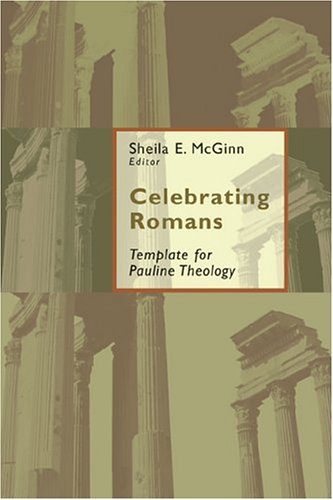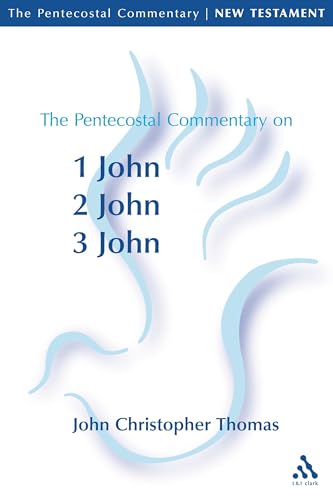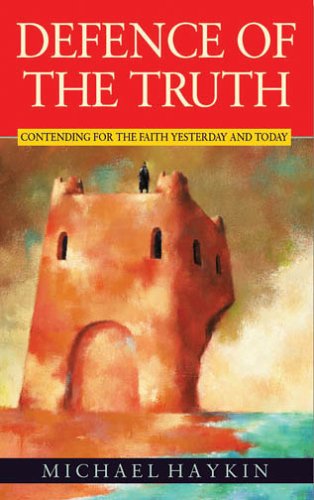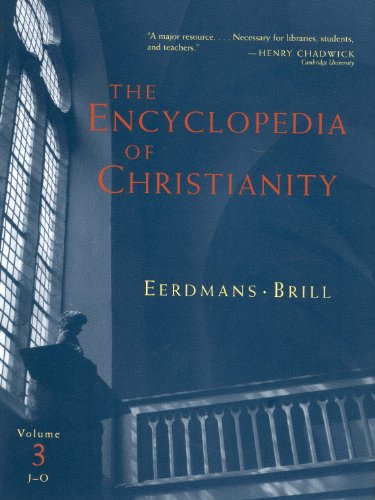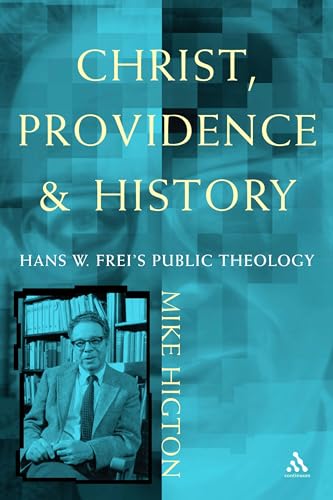Volume 31 - Issue 3
In Memory of Bob Horn: Personal Reflections on a Friend and Mentor
By Carl TruemanIt was with great sadness that I received the news of the death of Bob Horn, former General Secretary of UCCF and thus my own boss at Themelios for some years, from cancer late last year. He had been ill for some time, and the regular emails from his wife, Joy, had kept many of us informed of the slow but inevitable path of his illness, and of the valiant and joyful way Bob maintained his confident love in his saviour right up until the end. Bob was without doubt a significant leader within the British evangelical world, a leader whose influence was largely behind the scenes and yet which was no less significant or prophetic for all that. With his passing, the evangelical world is a poorer place; and my thoughts are with Joy and with Bob’s children and grandchildren as they mourn their loss.
I always knew that Bob Horn was old enough to be my father for the simple reason that his son, AI, and I were in the same year at Cambridge, both studying for the Classical Tripos. AI went on to be President of the CICCU, immediate successor to Vaughn Roberts, now Vicar of St Ebbe’s, Oxford. Thus, AI’s career exhibited his father’s passion for student evangelism and Christian work. At that time, Bob was editor of Evangelical Times and soon to be founding-editor of Evangelicals Now, a move which was traumatic and not without its critics, and yet which reflected Bob’s determination to be orthodox yet appropriately ecumenical in his approach to the British evangelical scene. By the mid 1980s, after all, it was becoming evident that the bitter break between the non-conformity of the Lloyd-Jones variety and the Anglican evangelicalism of the Stott/Packer trajectory had led to the impoverishment and weakening of both sides; neither separatism nor conformism had proved capable of carrying the mantle of a robust, yet engaged orthodoxy into the battles facing the church. History will surely judge Bob as one of the first men to realize this and to try to do something about it. His abiding vision was to find a path through the British evangelical impasse, a path which was both thoroughly orthodox and intolerant of blasphemy and heresy and yet which was not gleefully and uncritically involved in mortal combat and fratricide over every single theological point. Indeed, many of us on both sides—and I include myself here—did not really understand the profound nature of Bob’s insight on this point until many years later. His foresight in this matter, and his willingness to stick his neck out in the face of heavy criticism, were remarkable.
I did not myself get to meet Bob until over a decade later. By that time he was already serving as the General Secretary of UCCF and I was on Faculty at the University of Nottingham. I had written a short piece for Evangelicals Now which had caught his eye and the two of us arranged to meet for a clandestine cup of coffee in the centre of Nottingham. We hit it off immediately. A couple of months later, I found myself invited to become editor of Themelios and so began a working relationship with Bob that was to last a number of years. Our last personal contact came a few months before his death when he wrote a kind review in Themelios of The Wages of Spin, many of the chapters of which had started life as pieces or lectures given for groups with which he was intimately connected.
In reflecting on Bob’s life, I reckon that there are three things which I learned from his which have been of overwhelming importance to my life, in addition, of course, to his example of obvious love for the Lord and his humble Christian walk.
First, I learned from Bob the critical importance of doctrinal education. He was deeply concerned not only that students hear the gospel but that those who turned to Christ should be thoroughly grounded in the doctrines of the Christian faith. I particularly remember one conversation where he expressed to me his joy at the passion and fervency of the young people coming forward for service in UCCF and yet his frustration at their lack of theological ballast. ‘They evidently love Christ as their saviour,’ he said, ‘and yet they cannot tell you what they mean by that statement.’ Bob’s solution was twofold: impressing upon new Christians that it was absolutely imperative that they become members of good, Bible teaching, theological churches; and making sure that UCCF, in conjunction with IVP (UK) were both providing the resources to support students and churches in their witness to the truth—above all doctrinally expressed—of Jesus Christ and his kingdom. His own writings were most significant in this latter context.
Second, I learned from Bob the importance of firmly holding the line on key doctrinal issues, regardless of the personal consequences of taking such a stand. There were plenty of people who were not keen on Bob’s vision of evangelicalism. After all, while he wanted evangelicalism to be an engaged movement which did not bury its head in the cultural or theological sand, he yet saw that such engagement necessarily involved a clear and unequivocal commitment to the truth of the historic Christian faith. Indeed, as Bob would say, if you did not have that commitment then you had nowhere to stand and thus nowhere from which to engage in any meaningful, substantive sense. This made Bob very unpopular in certain quarters: as he took stick from some conservatives for his founding of Evangelicals Now, so I often heard dark murmurings about him from less conservative circles because of his refusal to cut doctrinal corners, to blur necessary boundaries or to sell-out orthodoxy to every passing whim of theological fashion. Bob held firm, regardless of the heat he took for so doing, and as such he was a role model to those in my generation who needed to see that a firm commitment to Christian truth was possible without a retreat to the eighteenth century; and that such commitment was necessary even though it brought little earthly rest, scant praise, and few materials benefits.
In this context, Bob was increasingly disturbed by the way he saw evangelical scholarship as changing on two fronts: first, a significant expansion of the meaning of the term ‘evangelical’ to include positions which, fifty or a hundred years ago, would have been regarded as unequivocally unevangelical (open theism and revisionism on justification being the two most obvious). Two: the ‘death of a thousand qualifications’ to which the modern fetish of hermeneutics, for all of its insights, seemed inexorably to lead with its neo-Gnostic vocabulary and its bombastic claims about its own importance. On these issues, Bob was my soul mate, mentor, and example, a source of wisdom, encouragement and strength. Indeed, I remember on one occasion I had received a particularly hostile letter about an early editorial I had written. I showed the letter to Bob, asking what I should do about it. His response? ‘Write a gracious and polite reply. But never forget: if you want to be popular, don’t bother being a Christian. And you must keep holding the line.’
Third: I learned from Bob that orthodoxy is not self-perpetuating, and that doctrines do not stay alive in a vacuum. The survival and flourishing of orthodoxy requires organization and planning seen generation has a responsibility to the next to know the times and to try to put in place the bricks and mortar which will preserve the faith for the future. He saw clearly how numerous institutions of British evangelicalism had been instrumental in changing the nature of evangelical identity and of eroding orthodoxy in sad and dangerous ways. Bob knew that the answer to this problem is not some magic bullet but rather tedious and time-consuming work. Given the nature of evangelicalism, it involves sitting on committees, taking on tasks which involve few rewards and much inconvenience; and yet he knew that if evangelicals do not do these things, there are plenty of other out there who will. Thus, it struck me that Bob’s last few years at UCCF were preoccupied with making sure that the right people were appointed to the right posts to preserve the organization’s faithful testimony in the UK student world to the power of God’s grace. The history of many institutions which once stood foursquare for the gospel and are now nowhere on the evangelical spectrum is too often a history of wrong appointments, spineless exponents of orthodoxy who keep silent at key moments, and disastrous short-term administrative decisions. Orthodoxy collapses not so much because it is actively opposed as because it is not actively promoted. Bob knew his history well; and he took steps to make sure that the same thing would not happen to UCCF on his watch.
In short, I can sum up what I learned from Bob as follows: the wages of spin is debt. Whether that spin is theological, ecclesiastical, or administrative, the result is always debt—moral and doctrinal—on all fronts; and that is debt which must be paid with crippling interest by subsequent generations. It is a lesson which cannot be learned too deeply or too often, and something upon which we must reflect as we move into the future. I am sad that the British evangelical world faces that future without the wisdom and counsel of Bob to help guide it.
In closing, I recall one final anecdote. Bob once told me that one of his favourite pieces of music was Brahm’s German Requiem. Now, being more of a jazz and rock man than a classical buff, I had to go and buy a copy to listen to the passage that Bob declared was so superb. It did not disappoint. The second movement sets the words of 1 Peter 1:24–25 to music. The first part, ‘For all flesh is as grass and all the glory of man as the flower of grass. The grass withers and the flower thereof falls away’ is set to a minor key; then the second part bursts forth in a spectacular major: ‘But the word of the Lord endures for ever.’ Even as a musical pleb, I can appreciate the pointed beauty of the passage; and in a way it sums up memories of Bob—individual men and women, boys and girls, are of little lasting significance; we come, we go, and the world keeps spinning on its axis; true glory, truly lasting glory, is only found in the Word of God. Bob committed his public life to defending, expounding and applying that Word. Now he has gone to the eternal reward which his Lord earned for him on the cross and to which he looked forward. He leaves us with a great task to do and a great example from which we can learn. Shalom, Bob, shalom.
Carl Trueman
Carl Trueman is Professor of Biblical and Religious Studies at Grove City College in Grove City, Pennsylvania.


